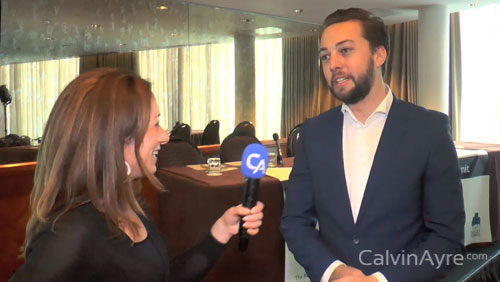In this interview with CalvinAyre.com’s Rebecca Liggero, Moritz Maurer of Betgenius tells us the challenges that come along offering in-play to eSports bettors.
There’s no denying that the popularity of eSports has become massive since the first video game tournaments opened more than 20 years ago.
Experts estimated the potential audience of eSports at around 1.4 billion. If eSports nation was actually a nation, it would be the largest in the world, eclipsing China’s 1.37 billion. The sheer size of eSports followers provides unique opportunity for businesses to exploit especially since it is still considered an undervalued territory to seize.
The rising popularity of eSports, however, has been put under a microscope by gambling watchdog groups especially after the Stream gaming marketplace was dragged into a major skin-betting scandal. In April this year, YouTube eSports stars Trevor “Tmartn” Martin and Tom “ProSyndicate” Cassel found themselves in hot water after it comes to light that they have been skin betting on a gambling site they own without full disclosure.
The scandal that rocked CS:GO has somehow tainted the untarnished reputation of the eSports industry. Nations soon started reviewing their gambling laws in order to determine whether first-person shooter video games must be classified as gambling.
Moritz Maurer of Betgenius pointed out that the challenge that most operators face now is ensuring the integrity of the eSports industry in the light of the skin-betting issues. In order to do that, he said that most companies spend money in eSports integrity lot.
“We heard a lot about skin betting today, which is like a complete secluded economy which has access in eSports,” Maurer told CalvinAyre.com “The main thing you look at is on skin betting markets, you’ll find events that are very small prized pools but a major volume behind it, from integrity side, there are lots of work to be done.”
In the case of Betgenius, Maurer pointed out that their firm is ready to assist any regulator, and any organization to work on preserving the integrity of eSports.
“I think it is the combined efforts of publishers, tournament hosts and leagues, and organizations to provide intelligence and tools to assess the markets effectively,” he explained.
But preserving eSports’ integrity is just one part of the challenges that they usually face, according to Maurer. He said that they always have to look at what’s happening inside eSports, which is composed of eight to ten different games.
Operators, according to Maurer, also need to think of in-game objectives, how to get the data and how to remodel it.
“In eSports and mobile games, we have 120 different heroes that compose the tactical layout for game. So you need like heroes specific data to understand how a teams Is scaling for the game phase, don’t look on to much detail here, it’s just lots of taking into consideration when creating an in-play product,” he said.
